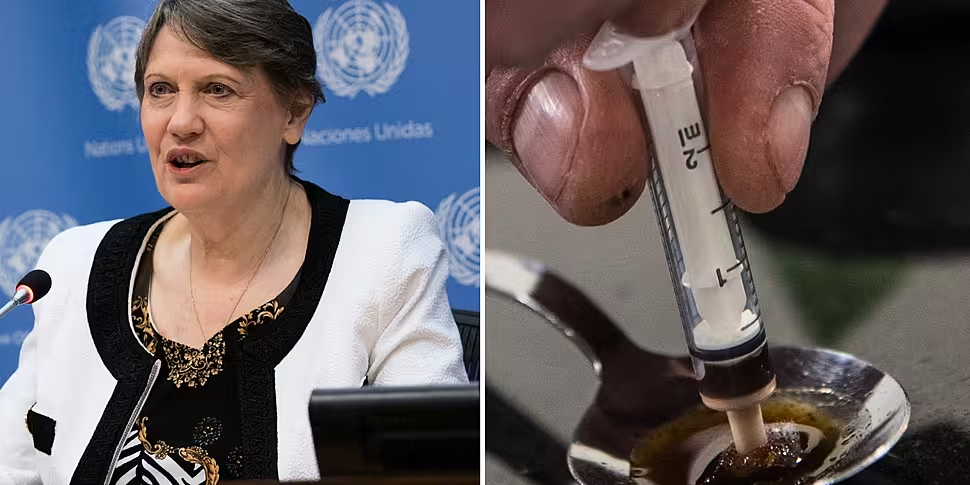It is past time for countries to move towards legalisation following the “dismal failure” of the international War on Drugs, according to the Chair of the Global Commission on Drug Policy.
In an interview with Clare McKenna on Moncrieff this afternoon, the former New Zealand Prime Minister Helen Clark said the commission is united in its view that “prohibition is the problem” when it comes to international drug laws.
The commission, made up of former world leaders and academics, aims to promote humane and effective ways to reduce the harm caused by drugs to people and societies.
Ms Clark said global policy is still based on the War on Drugs announced by US President Richard Nixon around 50 years ago.
“The attempt is to prohibit the use of drugs,” she said. “To eliminate the use and supply or to significantly reduce it.
“This has not only been a dismal failure because demand and supply are consistently increasing but it has also taken a tremendous amount of lives and caused over-imprisonment and a lot of social misery all round – so it is more than time for fresh thinking now.”
Prohibition
She said nobody should ever be criminalised for taking drugs.
“On the commission we are united in saying that prohibition is the problem,” she said. “We don’t support the prohibition.
“We don’t believe that anyone using drugs should be criminalised. We see these as essentially health and social measures.
“We think that drugs need to be regulated responsibly. We regulate alcohol and tobacco in many societies for example so we need to regulate drugs according to their potential for harm – but to criminalise and drive people underground into the hands of criminal networks for supply? None of this makes sense.”
Injection centres
Ms Clark said services like needle exchanges and safe injecting centres are “just such a basic no brainer public health measure” when it comes to reducing the harm caused by drugs on a national level.
“We just have to see every human life as important and we have to reach a helping hand out for those who have an issue, have a dependency and are living out that dependency in very, very unsafe and unhealthy circumstances,” she said.
“We have to help. I think that is the basic point I would make to the Irish people.”
War on Drugs
She admitted that it is “going to be very tough” to wind back the war on drugs in central and south American countries but noted that the noises coming from the Biden administration in the US have been “very encouraging.”
“I think we need to take people down a road saying, the approach that was mandated by the drug conventions and driven by Richard Nixon half a century ago has been a total failure,” she said.
“So, if something is total failure, you need to look for fresh approaches.”
Decriminalisation
Ms Clark said European countries should be following the example of Portugal, which decriminalised the personal possession of drugs more than 20 years ago.
“Portugal went from having the highest rate of death from drug-related causes in all of Western Europe to the lowest,” she said. “Now that speaks volumes to me.”
Four years ago, the Government set up a working group to examine alternatives to conviction for minor drug offences.
That came after the Oireachtas Justice Committee travelled to Portugal in 2015 to see first-hand the effect of the country's decriminalisation policy.
In 2019, the working group called for a “health-led approach” to the possession of drugs for personal use.
You can listen back here:









